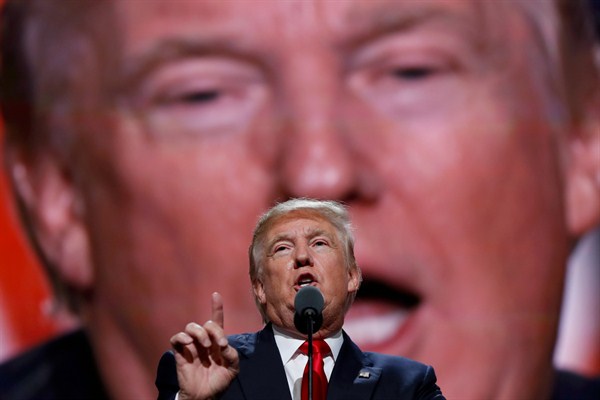Despite a historically unprecedented degree of national security, many Americans are worried about defeat at the hands of a motley group of violent extremists, particularly the so-called Islamic State. This climate of fear has been building steadily since the 9/11 attacks on the United States, which taught many political leaders as well as much of the military and intelligence community that it was safer to overinflate threats than to underestimate them. People are rarely ever held accountable for dire warnings that prove to be wrong, but they often are for failing to prevent an attack. The result, as Michael Cohen has argued in his WPR column, has been the institutionalization of “fear mongering” in official Washington.
Unfortunately, the problem goes beyond official Washington. Since 9/11, an influential “fear industry” has taken root in the media and other opinion-shaping institutions and groups. It has consistently moved toward ever-greater gloom and hysteria, knowing this is the best way to get attention in a crowded marketplace of ideas. In today’s competitive information environment, extreme positions and amplified fear sells more advertising and wins a larger market share than balanced moderation. So far, much of the public has bought in.
In the 2016 presidential race, fear-mongering has reached a fever pitch. Donald Trump, the Republican nominee for president, and his surrogates have built his campaign on the assertion that the United States faces defeat by violent Islamic extremists, particularly the Islamic State. “If we don’t get tough, and if we don’t get smart, and fast,” he has claimed, “we’re not going to have a country anymore.” As journalist Nicholas Confessore noted, the speakers at this week’s GOP convention “presented a United States in danger, threatened from abroad and from within, a once-proud nation on the very brink of chaos and dystopia.” The worse things get, Jacob Heilbrunn pointed out, “the better Trump’s chances become.”

